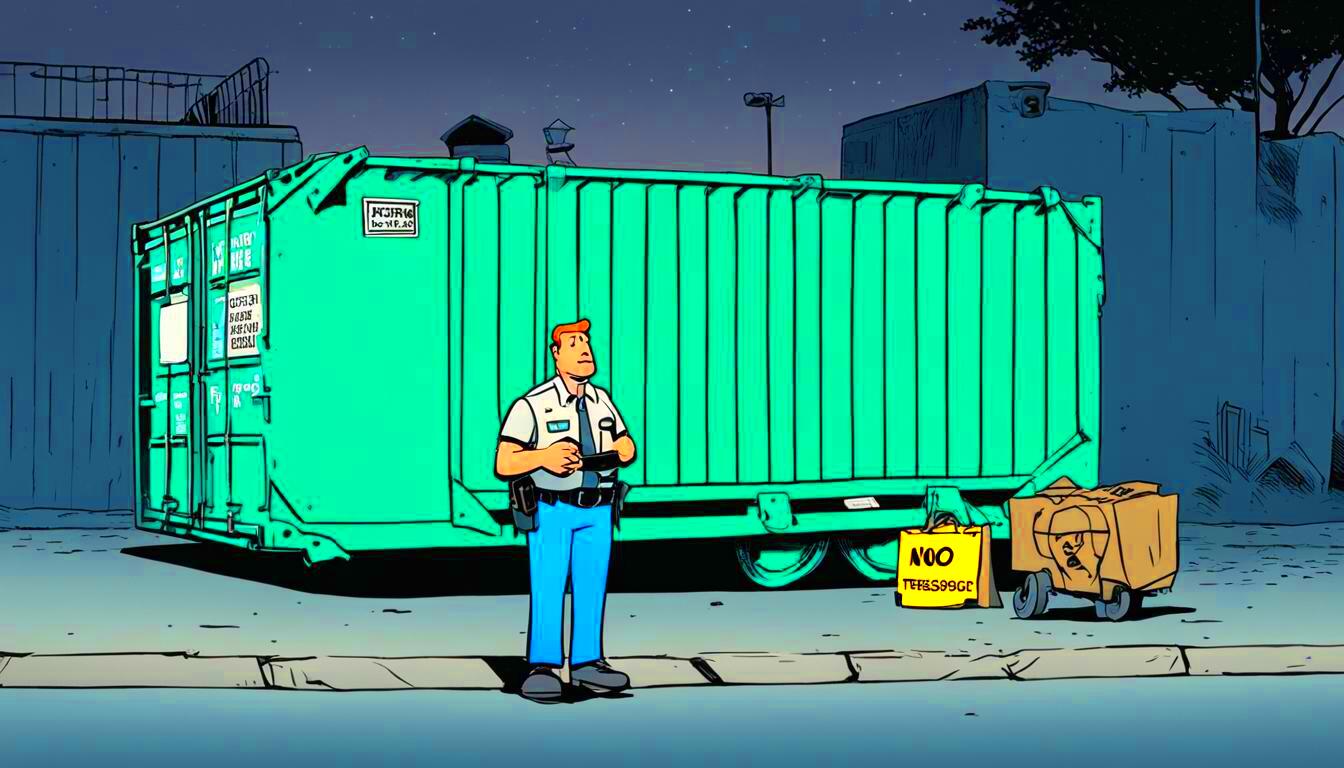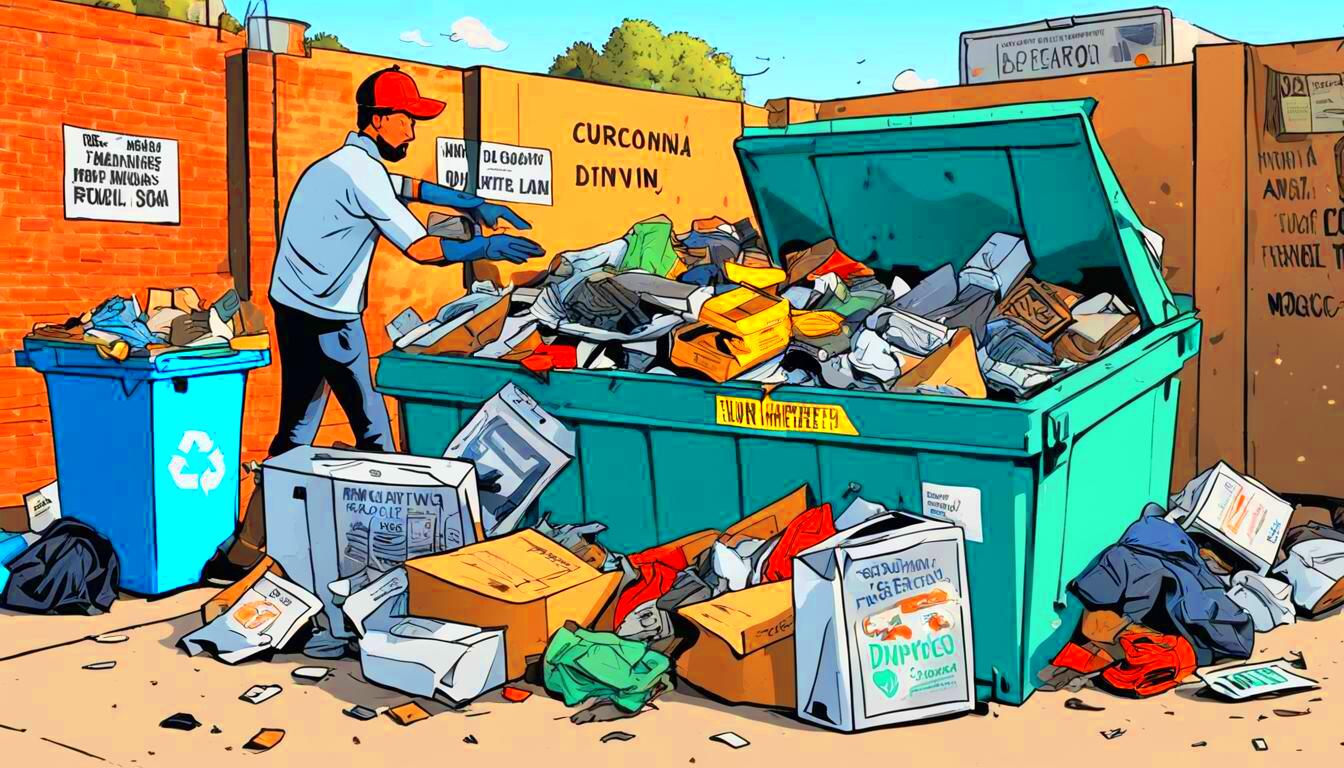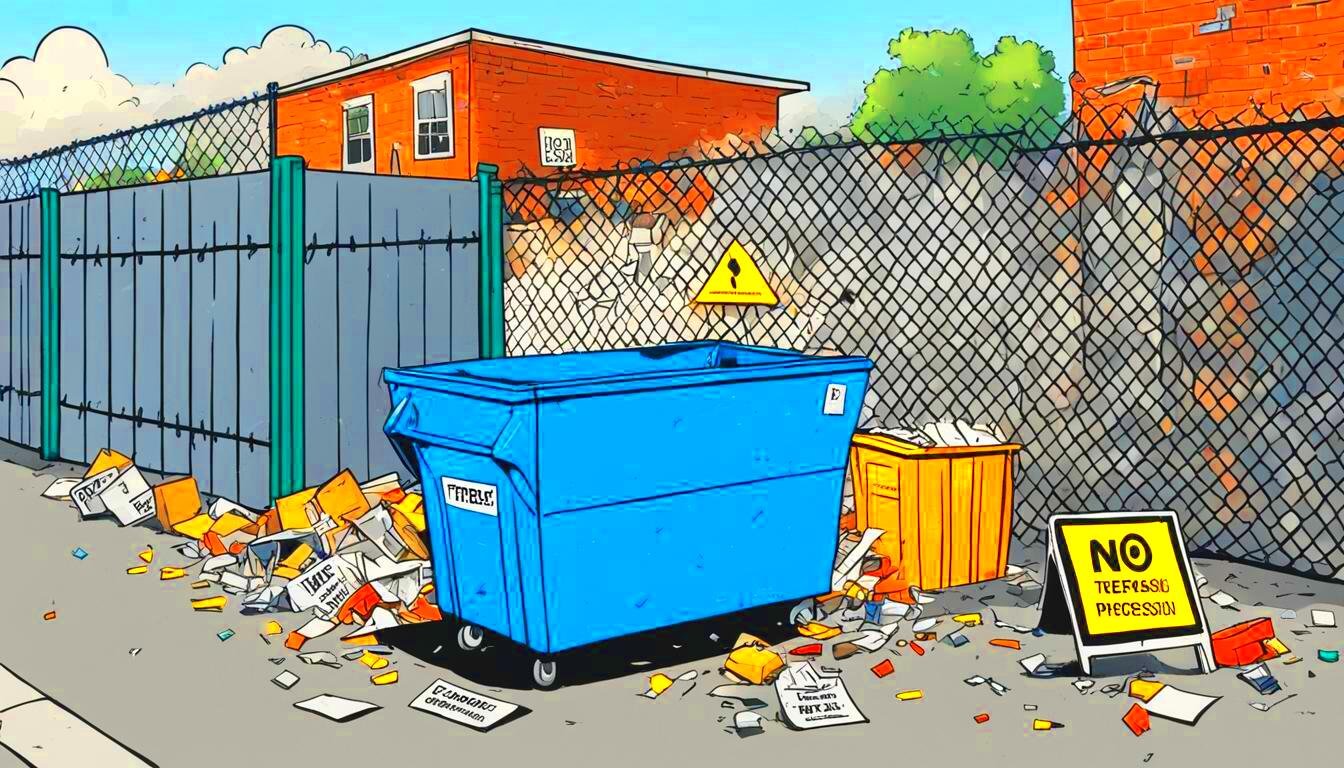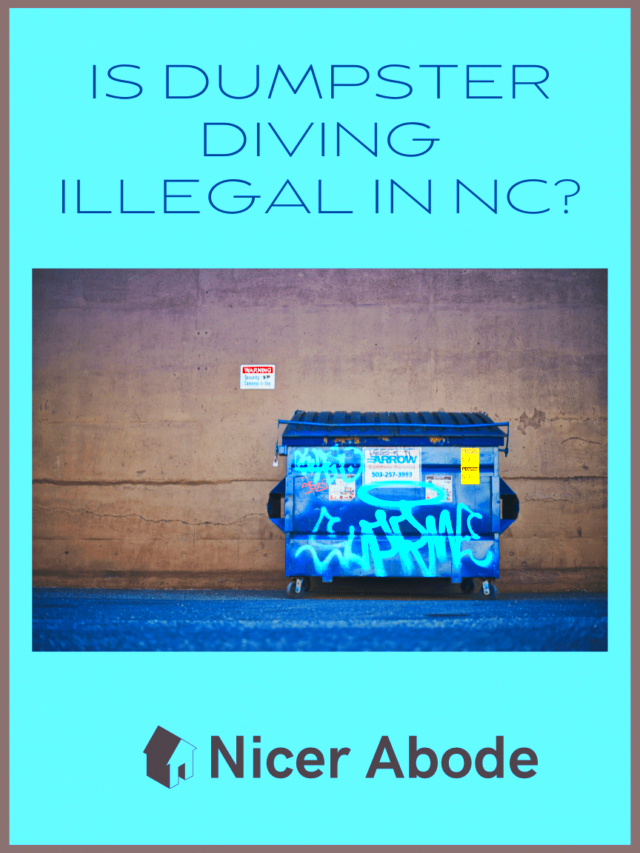North Carolina Dumpster Diving Laws: What You Should Know
Dumpster diving is the act of searching through commercial or residential waste containers to find items that can be reused, recycled, or repurposed. In North Carolina, this practice is becoming more popular, especially among those looking to reduce waste and save money. However, many people are unaware of the legal implications and safety concerns that come with dumpster diving.
Understanding the local laws and community attitudes is essential for anyone considering this activity. While dumpster diving can be a way to find useful items, it’s important to do it responsibly and respectfully. Below are some factors to keep in mind:
- Community Support: Some communities actively encourage recycling and waste reduction.
- Environmental Benefits: Dumpster diving helps reduce landfill waste and promotes sustainability.
- Potential Risks: There are safety and legal risks involved, which we will discuss in the following sections.
Legal Status of Dumpster Diving in North Carolina

The legal status of dumpster diving in North Carolina can be complex. Generally, dumpster diving is legal in many areas, but it can depend on local laws and the circumstances of the dive. Here are some important points to consider:
- Public vs. Private Property: Diving in dumpsters on public property is often legal, but doing so on private property without permission can lead to trespassing charges.
- Local Ordinances: Some cities may have specific regulations against dumpster diving, so it’s crucial to check local laws.
- Waste Management Policies: Businesses may have policies in place that affect how waste can be accessed.
Before diving, research your local laws and ensure you’re not violating any regulations. Always err on the side of caution and seek permission if unsure about a property.
Property Rights and Dumpster Diving

Understanding property rights is vital when considering dumpster diving. In North Carolina, the rights of property owners play a significant role in determining whether or not diving is permissible.
Here are some key points about property rights related to dumpster diving:
- Ownership: The owner of the dumpster owns the contents until they are discarded. This means taking items without permission can be considered theft.
- Consent: Always ask for permission if you want to dive in a private dumpster. Respecting property rights can help avoid legal trouble.
- Local Policies: Some municipalities have laws that specifically address dumpster diving, highlighting the need to be informed about local regulations.
Being aware of these property rights can help you navigate the complexities of dumpster diving legally and ethically. Always remember that respecting others’ property is key to a positive experience.
Potential Consequences of Dumpster Diving

While dumpster diving can be an exciting and rewarding experience, it’s essential to understand the potential consequences that may arise. These can range from legal troubles to health risks. Here’s what you need to know:
- Legal Issues: If you dive into a dumpster on private property without permission, you could face trespassing or theft charges. It’s always best to check local laws.
- Health Hazards: Dumpsters can contain sharp objects, hazardous materials, or spoiled food. Diving without proper precautions can lead to injuries or illnesses.
- Community Reactions: Not everyone views dumpster diving positively. Some may see it as a nuisance, leading to conflicts with local residents or businesses.
- Loss of Reputation: Engaging in dumpster diving may impact how you’re viewed in your community. Being mindful of how you conduct yourself can help mitigate this.
It’s important to weigh these potential consequences against the benefits of dumpster diving. Always approach it with caution and a respect for local laws and community sentiments.
Best Practices for Safe Dumpster Diving
If you decide to go dumpster diving, following best practices can help you stay safe and have a positive experience. Here are some tips to ensure your diving adventures are enjoyable and responsible:
- Wear Protective Gear: Always wear gloves, sturdy shoes, and possibly a mask to protect yourself from sharp objects and germs.
- Choose the Right Time: Diving early in the morning or late in the evening can help you avoid confrontations with property owners and busy traffic.
- Be Respectful: Always clean up after yourself and avoid leaving a mess. Respect property boundaries and be mindful of local residents.
- Go with a Buddy: It’s safer to dive with a friend. Not only can you help each other out, but you’ll also have someone to share your finds with.
By following these best practices, you can enjoy the benefits of dumpster diving while minimizing risks. Remember, safety first!
Local Ordinances and Regulations
Before you start dumpster diving, it’s crucial to understand local ordinances and regulations that might affect your activities. Different cities and counties in North Carolina can have varying laws regarding this practice:
- City-Specific Laws: Some cities may have specific ordinances that regulate or prohibit dumpster diving. Research your local laws to stay informed.
- Recycling Programs: Many areas have recycling initiatives that encourage responsible waste disposal. Participating in these can align with your diving efforts.
- Enforcement Policies: Understanding how local authorities enforce laws related to dumpster diving can help you navigate your activities safely.
Being informed about local regulations can save you from legal troubles and enhance your dumpster diving experience. Always check with local authorities or community boards if you’re unsure about the rules in your area.
Community Attitudes Toward Dumpster Diving
Community attitudes toward dumpster diving can vary widely. Some people view it as a resourceful way to find items that might otherwise go to waste, while others may see it as undesirable behavior. Understanding these differing perspectives can enhance your experience and help you navigate social interactions while diving.
- Supportive Communities: In some neighborhoods, residents may actively support recycling and waste reduction efforts. They may appreciate the initiative and resourcefulness of those who dive.
- Negative Perceptions: Conversely, some communities may look down on dumpster diving, associating it with homelessness or poor hygiene. This can lead to negative reactions from locals.
- Education and Awareness: Raising awareness about the environmental benefits of dumpster diving can help shift attitudes. Many divers aim to reduce waste and promote sustainability.
- Engaging with Locals: Building rapport with community members can improve your experience. A friendly approach can change perceptions and create a more accepting environment.
Ultimately, your experience will largely depend on the attitudes of the community where you dive. Being respectful and aware of these dynamics can help you enjoy the process while minimizing any negative encounters.
Frequently Asked Questions
Curious about dumpster diving? You’re not alone! Here are some frequently asked questions that can help clarify common concerns:
- Is dumpster diving legal in North Carolina? Yes, but it depends on whether you’re on public or private property. Always check local laws first.
- What should I wear while dumpster diving? Wear gloves, sturdy shoes, and long sleeves to protect yourself from sharp objects and germs.
- Can I take anything I find in a dumpster? Generally, yes, but it’s important to ensure you’re not trespassing or stealing from private property.
- What types of items can I find? You might discover furniture, clothes, electronics, and even food. Always check items for safety and cleanliness before taking them home.
- How can I be respectful while diving? Clean up after yourself, avoid making a mess, and consider the feelings of local residents.
These FAQs address some common concerns and help you dive responsibly and ethically.
Conclusion
Dumpster diving can be a rewarding and sustainable practice if approached with the right knowledge and respect. Understanding the legal landscape, community attitudes, and best practices can enhance your experience while minimizing risks. Whether you’re looking to find unique items, reduce waste, or simply explore, being informed is key.
As you embark on your dumpster diving journey in North Carolina, remember to:
- Stay aware of local laws and ordinances.
- Practice safety by wearing protective gear.
- Respect property rights and community sentiments.
With these considerations in mind, you can enjoy the adventure of dumpster diving while contributing positively to your community and the environment.


